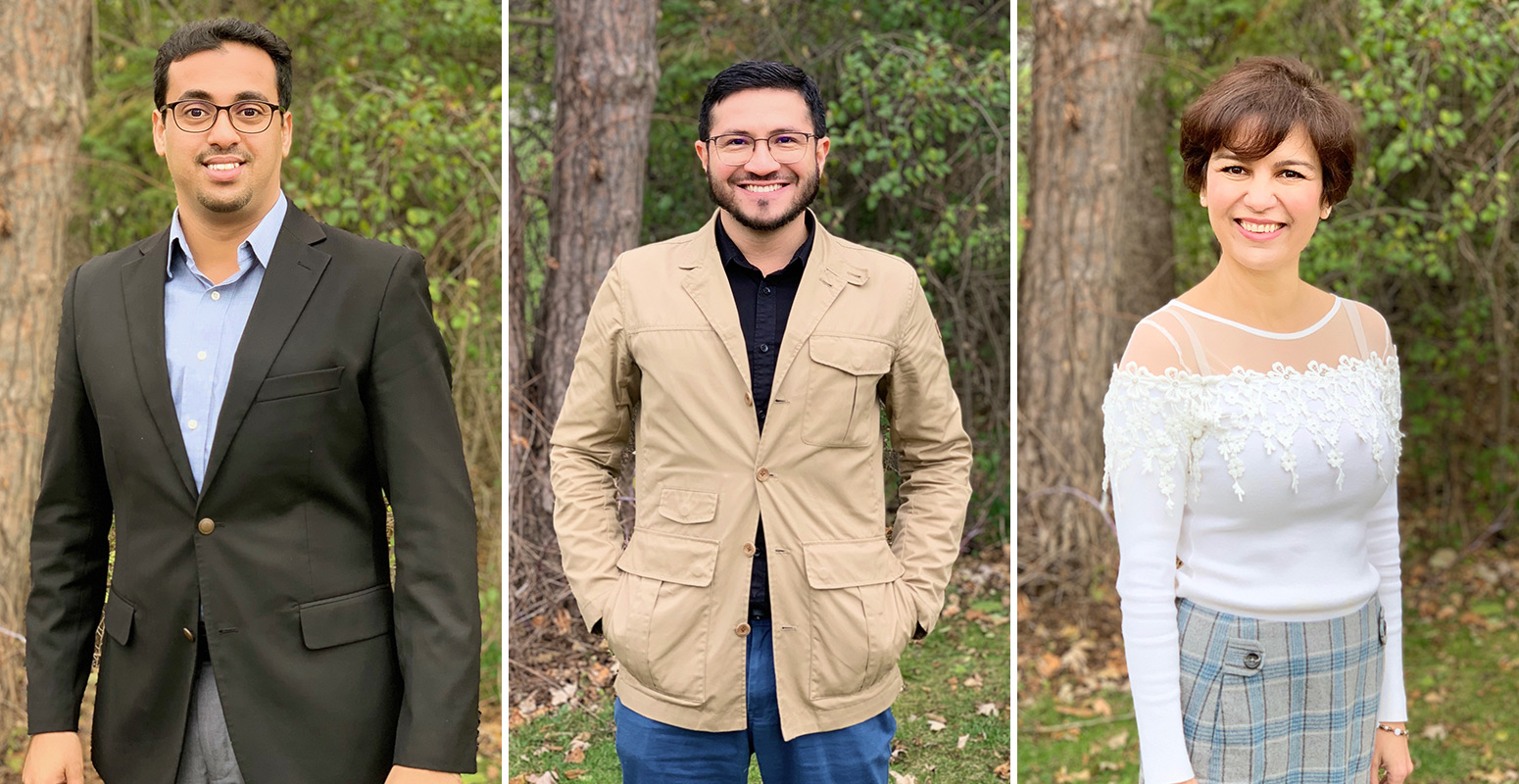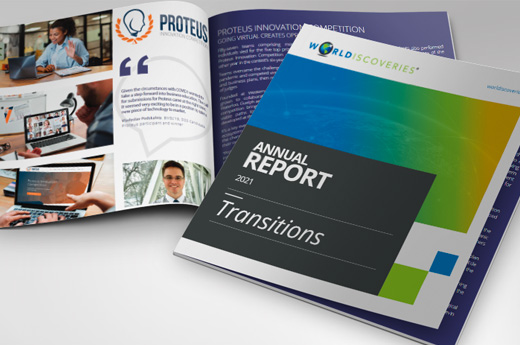Western Medical Innovation Fellows Bashar Yafouz, Wagner H. Souza, and Maryam Majedi participated in the fifth annual Proteus Innovation Competition and through their abstract, business plan proposal and business pitch grabbed one of the top three $5,000 prizes and the chance to license and market the technology.
The Fellows, part of Western’s Medical Innovation Fellowship (MIF) program which immerses early career scientists, engineers and clinicians in a training and research-heavy environment with the goal of developing future leaders and innovators of world-class medical technologies.
The skills learned from their program gave them a competitive advantage when they decided to participate in the Proteus Innovation Competition – an intense, four-month competition that takes three newly developed technologies from Ontario research institutions and challenges teams to plan their commercialization. It is a partnership among WORLDiscoveries, Western Entrepreneurship, Western Research Parks, TechAlliance, McMaster University and the University of Windsor.
“We believe that being part of the MIF program significantly contributed to our success in this competition given that such experience equipped our team with a holistic business perspective in which inter-professional work can be optimized towards the translation of individual concepts into solutions that are too, in their very essence, holistic” said Bashar Yafouz who acted as captain for the team.
For the second year, WORLDiscoveries, the business development and technology transfer office for Western teamed up with its counterparts at McMaster University and University of Windsor to offer three technologies from their portfolios of commercialization ready technologies. Western presented a microbiome modulation with CRISPR tech while McMaster offered a neonatal laryngoscope, and Windsor a flexible pressure sensor.
The trio’s commercialization plan for Windsor’s flexible pressure sensor, proposed to use the cost-effective sensor to create insole gait monitors for shoes that could be used to help people who experience mobility problems.
“We were very impressed by the technology once it was presented at the competition launch. We believe such low-cost gait monitoring sensors would pave the way towards ease-of-access to locomotor performance assessment and therapy, which would allow for a better quality of care during rehabilitation” said Souza, who has a background in physical therapy and neuroscience.
The sensor would provide valuable data to clinicians to better understand their patients’ movement patterns allowing them to assess their condition and provide solutions to mediate any further decline in mobility. Millions of Canadians suffer from mobility problems brought on by stroke, neurological diseases, aging as well as diabetes and could benefit from this gait monitoring system.
The team also had to adapt to changes made to the competition which typically holds a live pitch finale event where all teams present their commercialization plan to a panel of industry experts and can answer questions posed to them by the judges. Due to social distancing restrictions during the COVID-19 pandemic the contestants had to prepare video pitches instead. Although the competition didn’t conclude as usual with the winners being announced in front of a large crowd and being handed jumbo cheques the team still enjoyed the competition.
Their video pitch can be seen below:
“The experience was invaluable and taught us how to articulate a new idea to a viable business plan. We enjoyed the process very much. Many challenging questions had to be addressed along the way. Nevertheless, we were fortunate to receive valuable support from the inventors, Entrepreneurship Practice & Innovative Centre and the Office of Research and Innovation Services at the University of Windsor” said Majedi of the experience.
In addition to the $5,000 prize the team can also license the technology and form a startup company.
“The Gait Monitoring Smart Insoles can make a vital contribution to monitoring gait. As an example, the product has the potential to prevent amputations for many diabetic patients. We are interested in licensing the technology but will decide on that at a later stage” said Majedi on whether the team planned to form a startup with the technology.
2019 Proteus Innovation Competition winning teams were:
Team BacCheck
Microbiome modulation with CRISPR
The team included: Tomi Laditi, Berto Mill, Aleks Dalek, David Mill
Team Neolyx
Neonatal Laryngoscope
The team included: Zoey Li, Sophia Lu, Jamie Ching
BMW Gait
Flexible pressure sensor
The team included: Bashar Yafouz, Wagner H. Souza, Maryam Majedi


